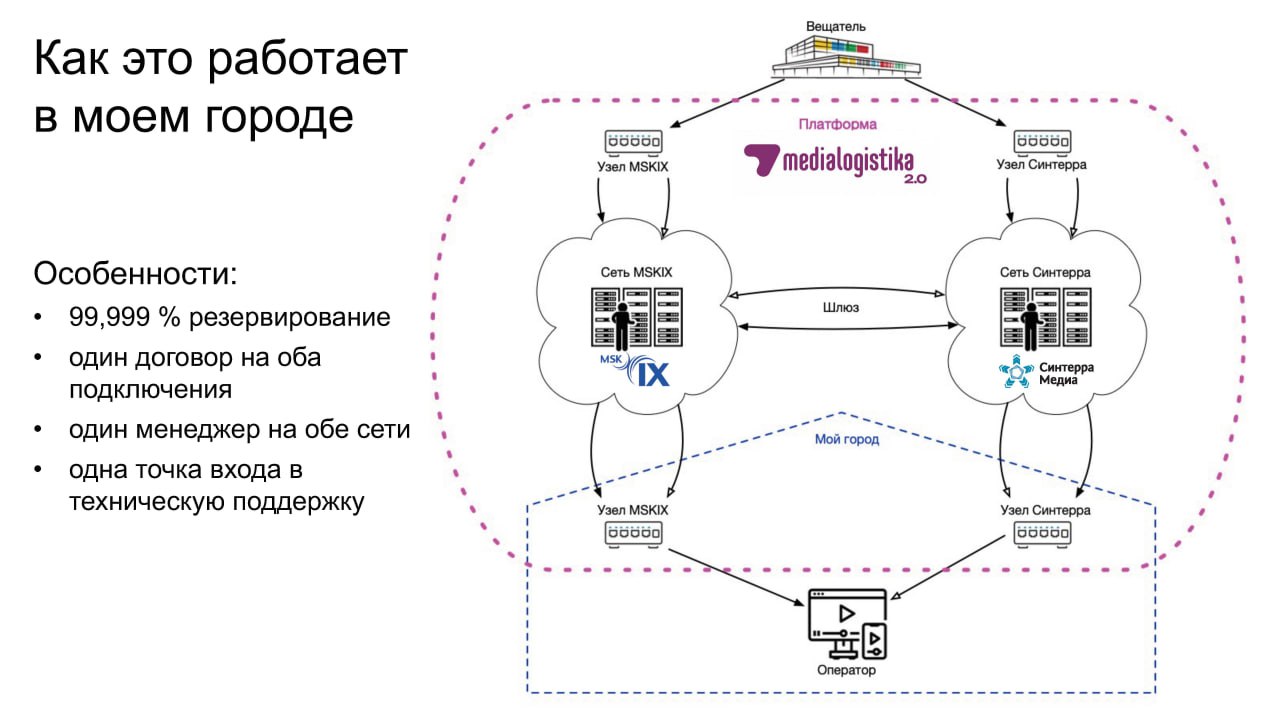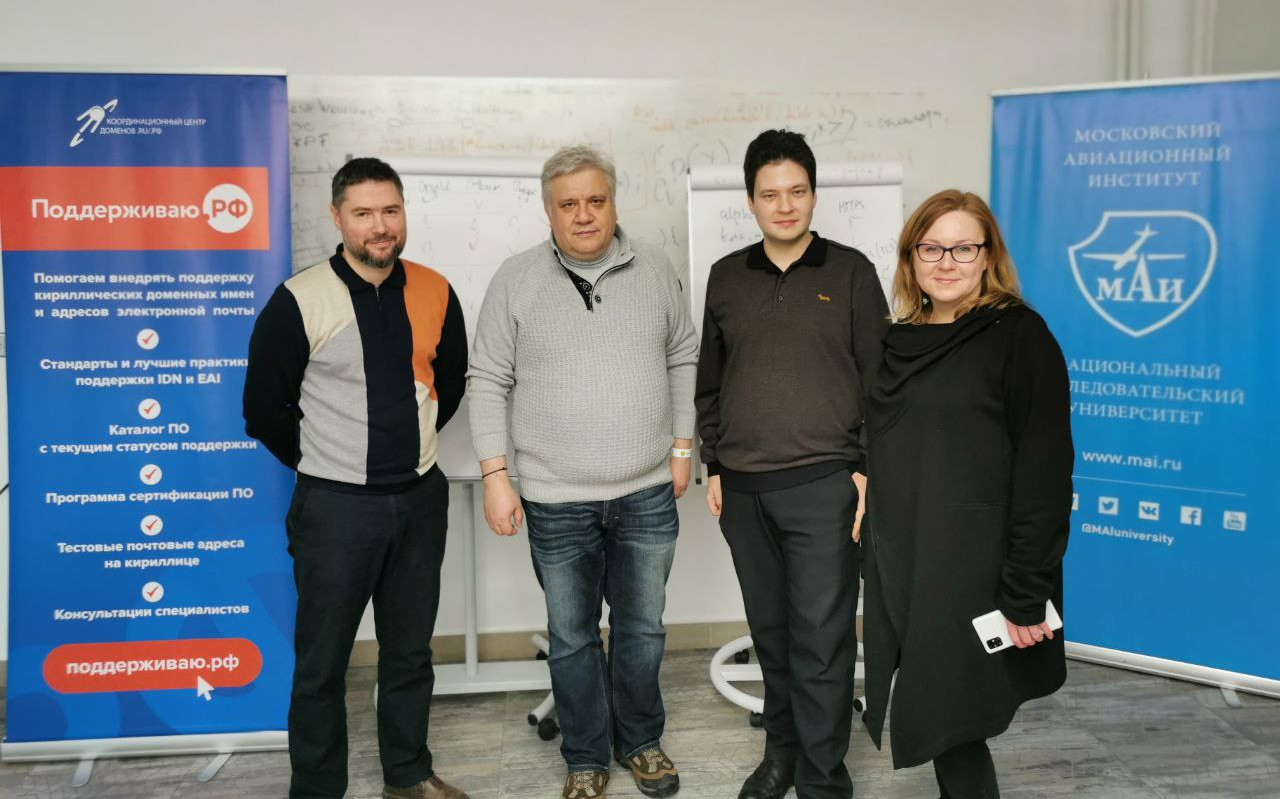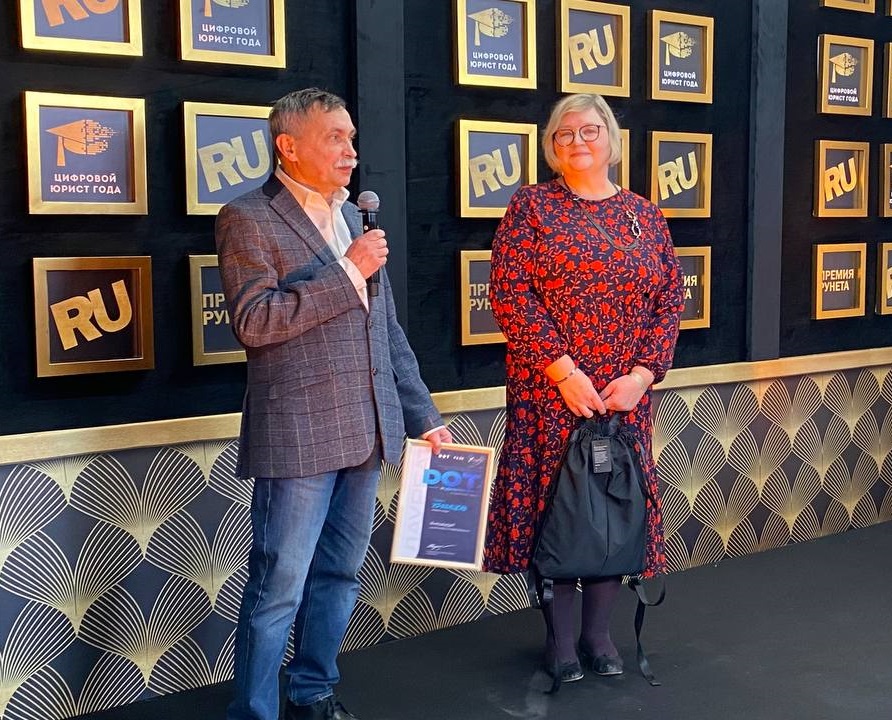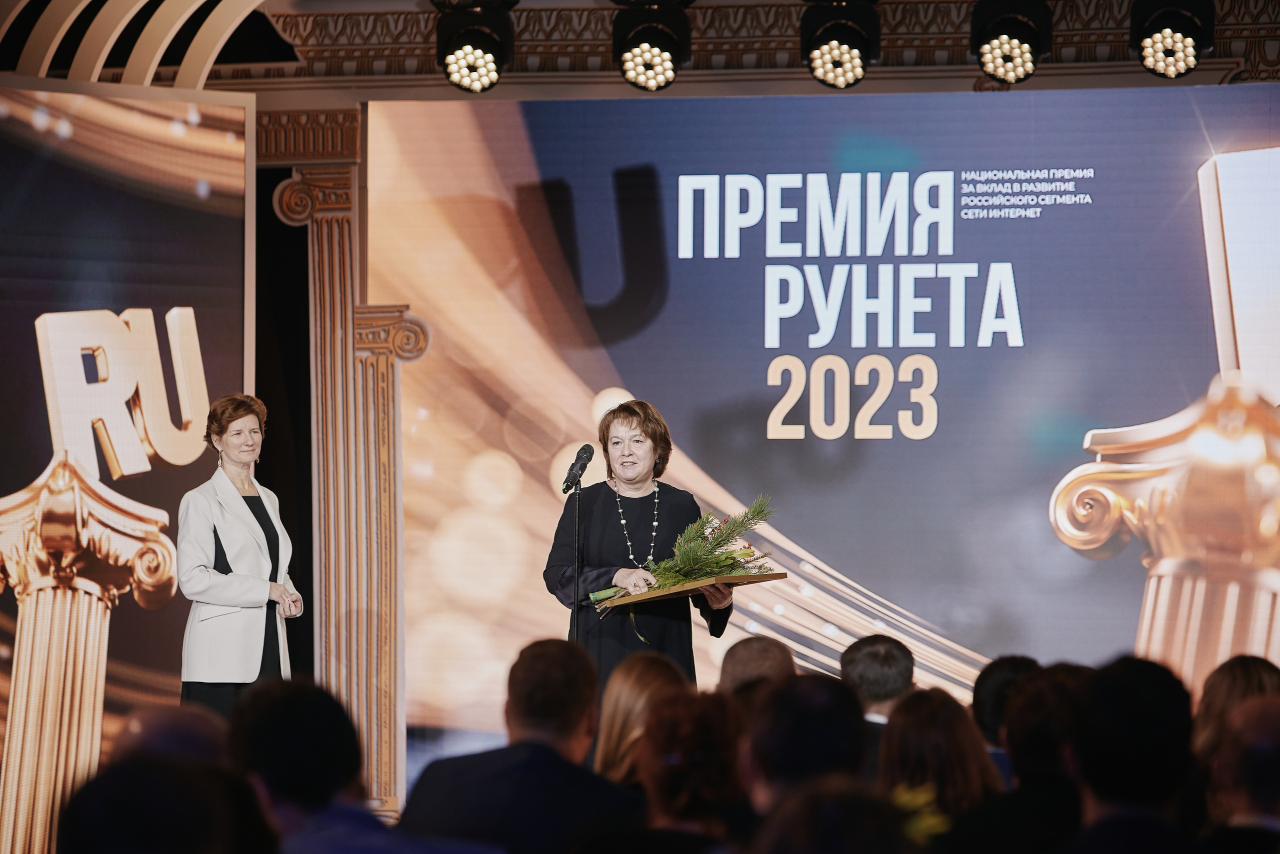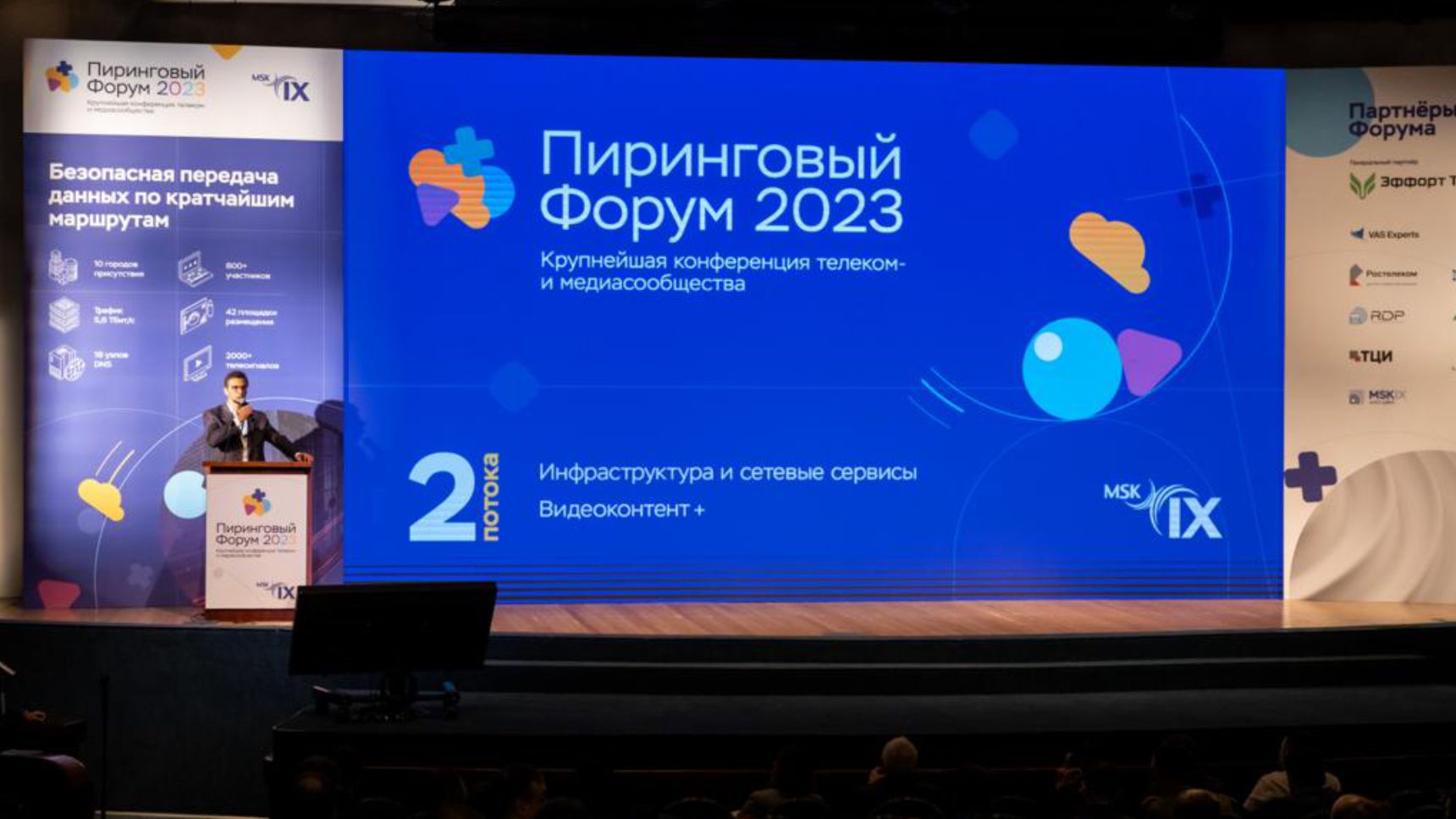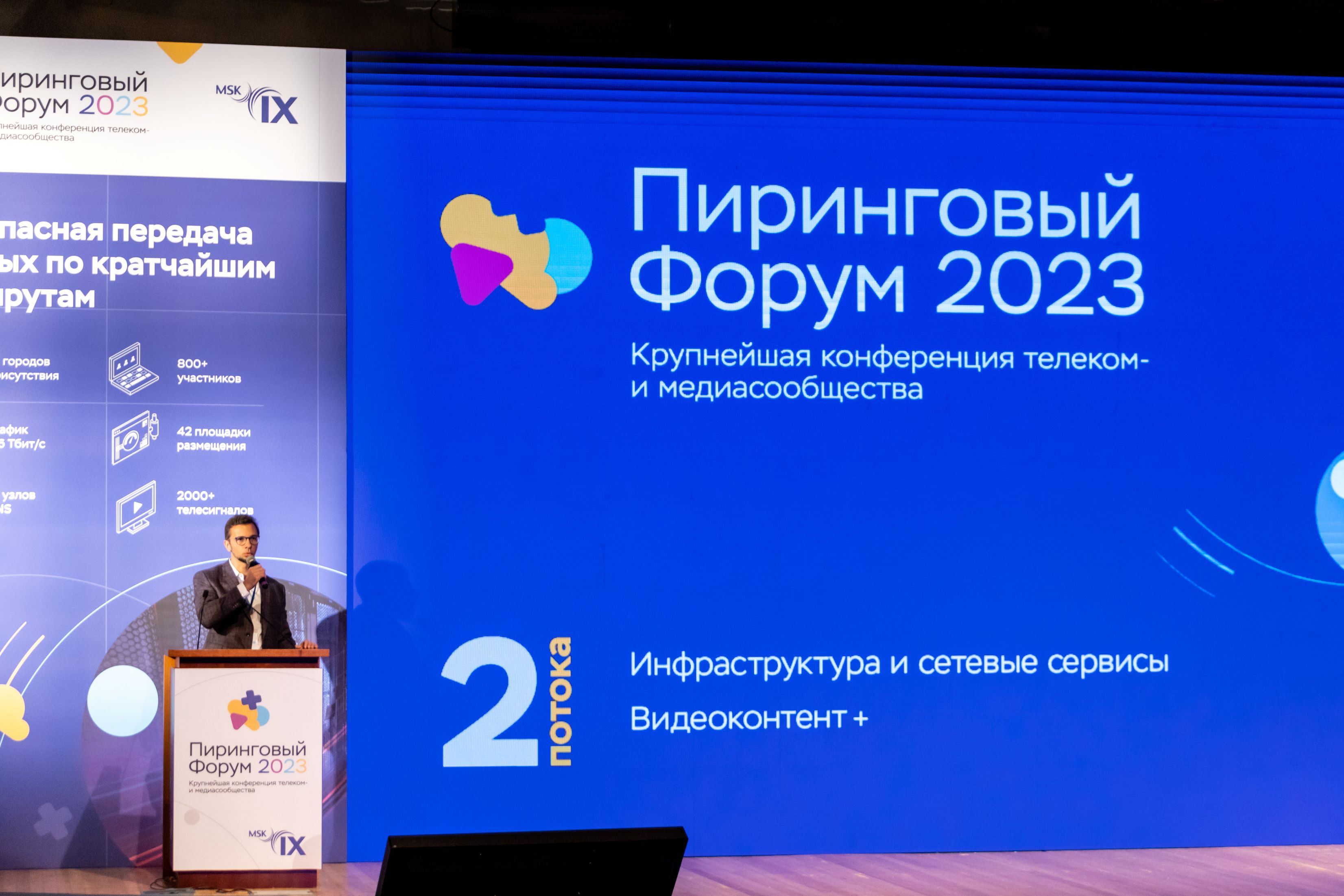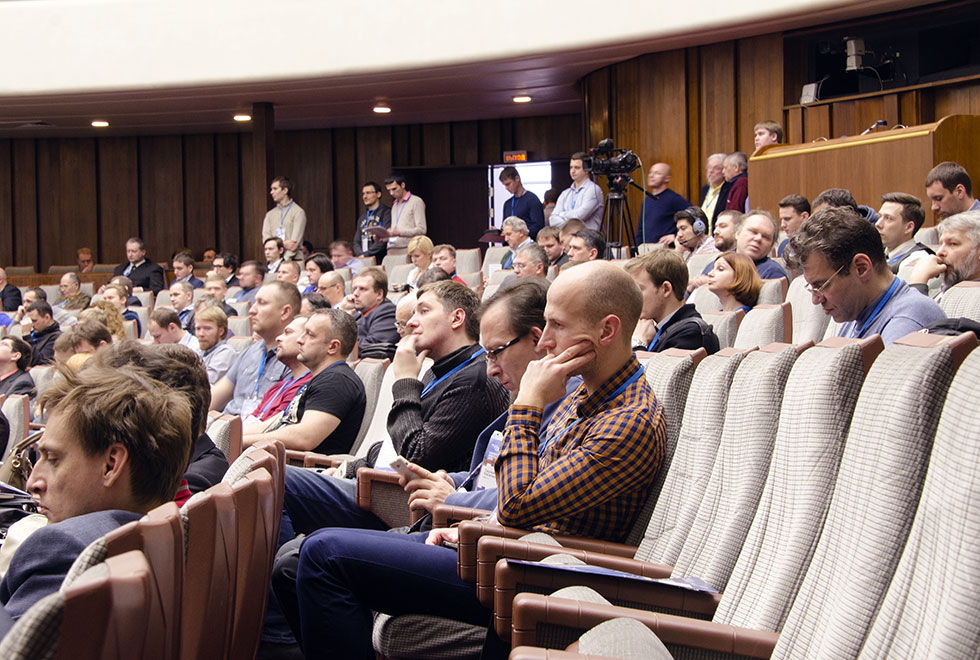Peering Forum 2023 brings together over 70 speakers and 750+ participants on a single platform
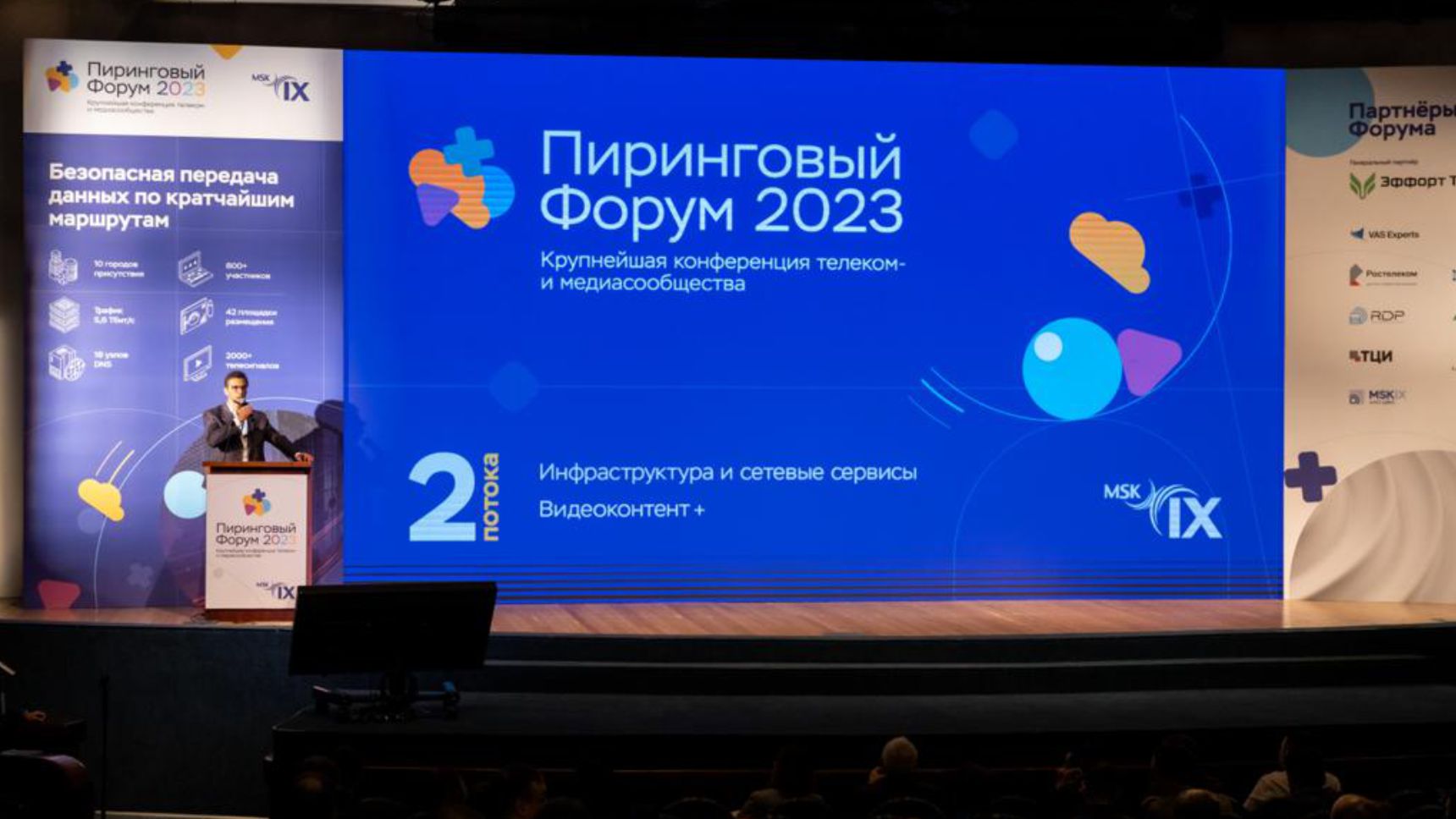
Peering Forum 2023 is Russia’s main conference for telecom and media professionals, focusing on online technology and the media market. Organized by MSK-IX, its 18th edition brought together over 750 professionals representing telecommunications operators, content providers, government institutions, data centers and media companies. The Peering Forum is a major highlight for the Russian telecom community, serving as an annual gathering for discussing the most relevant and topical matters and developments and setting in motion sectoral development trends.
This year, the forum included two parallel thematic tracks: Infrastructure and Network Services and Video Content+, which offered participants a wide choice of topics to suit every interest. Over 70 speakers took the floor during the forum, including leading industry experts who shared their experience and views regarding the current state and future of the Russian market.
MSK-IX Director General Yevgeny Morozov opened Peering Forum 2023 by welcoming participants and reminding them that the authorities adopted several laws dealing with telecommunications. He underscored that the professionals working in this field have been able to come up with effective responses to all the challenges they faced in this market. He further noted the continuous growth of the Peering Forum community.
Rostelecom Data Processing Center CEO Sergei Bochkarev thanked industry professionals for their work and wished them every success in their endeavors.
Head of sales at MSK-IX, Oksana Antipenko, said that despite objective challenges, the company has been expanding its client base and developing.
MSK-IX CTO Alexander Ilyin gave an unconventional presentation by promising to share a recipe for turning an apple into cabbage. Of course, he didn’t mean it literally. He explained that in this metaphor, the apple symbolized conventional traffic exchange operations, while the cabbage represented additional services related to the core offering.
Grigory Kuzin, head of the Medialogistika project, conferred the title of Medialogistika members on the team of Synterra Media to celebrate the launch of the Medialogistika 2.0 project in cooperation with MSK-IX. He also presented awards to the best partners of the year.
The Infrastructure and Network Services track opened with a technical session on Services and Metrics. Pavel Khramtsov, Research Director at the Indata Foundation for Promoting Network Technology made a presentation titled “Country-code domain zones in the mirror of public resolvers.” Ivan Potapov from Qrator Labs then shared his perspective on network connectivity and demonstrated ways to model network topology.
Dmitry Ipatov from Okko provided a detailed insight into the operation of a CDN online movie theater that distributes traffic through regional servers at a rate of 3.5 Tbit/s. He also discussed Okko’s server settings and interactions when transferring content and live signals.
Yelena Yakupova from VK continued the CDN topic by focusing on the service’s development drivers and performance metrics. Currently, VK’s CDN consists of 100 nodes with a bit rate of 15 Tbit/s. There is also a monitoring system in place to ensure content availability within the nodes. If a node becomes overloaded, requests are rerouted to servers with more capacity.
The session titled “Technological development strategy: Tools for future development” began with a presentation by Selectel’s CTO Kirill Malevanov, who talked about technological advancements in data networking equipment, highlighting Russian solutions. Malevanov argued that all this equipment is built around a single data-transfer chip, while different solutions vary in their secondary features. He also pointed out that even major brands use third-party chips.
The session continued with a panel discussion titled “Import substitution: Developing services and infrastructure.” Participants discussed how the telecom market has changed over the past two years and offered predictions for the near future. Gleb Khokhlov from MITIGATOR talked about good-faith competition practices and the way software companies do business. Mikhail Kader from Positive Technologies shared insights into quality, performance, and scalability requirements for Russian software products. He emphasized the need for caution and diligence when analyzing new systems for their ability to handle high traffic loads. Alexei Bakhtin from RDP focused on the company’s performance targets and talked about the program for achieving them.
The panel discussion titled “Games for networks and networks for gaming” kicked off with a statistical report demonstrating that the number of gamers has been on the rise, particularly among female gamers. Innova’s Alexei Patsiorkovsky talked about the new technical challenges his company has faced despite specializing in gaming platforms rather than gaming products. Alexei Lykov from VK Play shared his company’s plans to disrupt the global gaming industry by developing a proprietary gaming engine and supporting Russian software companies in creating high-quality games.
The session titled “Internet in Russia ++: What to expect?” started with Konstantin Kolesov from Beeline presenting the changes in the internet landscape in Russia and predictions for 2024. He mentioned that YouTube remained the most popular website among online users, while Telegram experienced a 40 percent increase in traffic in 2023.
The panel discussion titled “Runet 2024: risks and growth points” focused on the current and future efforts to develop communication networks in Russia. In particular, they discussed traffic sources, content structure and delivery routes, and other relevant topics. Olga Makarova from MTS said that the emergence of new services has had a corrosive effect on YouTube’s market share, with Telegram fully replacing blocked traffic and online movie theaters gaining a larger share of overall traffic.
The Video Content+ track started with a workshop titled “Launching a television channel, from concept to audience: How-to’s and case studies,” during which participants representing all segments within the media industry used case studies and real-life examples to describe the way a new television channel goes through its lifecycle from the decision to launch it to social media promotion.
The panel discussion “Who pays for television channel delivery: Broadcasters, operators, or both?” was moderated by Yelena Solovyova, an expert from Cableman portal. The debate included input from cable operators, broadcasters, satellite and terrestrial content delivery platforms. Medialogistika’s Director Grigory Kuzin said that he strongly believed in a model in which both broadcasters and operators share the cost of channel delivery, as it provides benefits and contractual safeguards for all parties in terms of service quality and other advantages. Rosteleset Director Oleg Grishchenko noted that only major operators could shoulder additional expenses, while smaller providers were not ready to go down this road. Marina Gorbik, CEO of Kontakt Agency, advocated for allowing market players to choose their content delivery framework, suggesting that the best approach would be to adopt the main delivery method with a backup solution.
The forum showcased new content for November and December 2023 from Tricolor, Signal Media, and Viasat. Representatives from these companies presented new television channels and showed their eye-catching trailers.
Participants in the panel discussion titled “New laws regulating media and telecom: impact, application, and compliance,” engaged in a lively debate on the latest developments in the regulatory framework for the Russian telecom and media sectors. They agreed that market actors often struggle to understand the principles governing present-day regulations. Some laws create more problems while failing to address the issues that regulators are expected to resolve.
The session titled “Video content + Hollywood substitution” began with an analysis report by Denis Kuskov from Telecom Daily titled “Replacing Western content with Russian and Asian projects: Analysis and main trends.” The speaker discussed how the Russian market has changed since the departure of Hollywood studios and highlighted the current content preferences of the Russian audience.
Participants in the next panel discussion, titled “Domestic content as an alternative to Western mainstream productions” followed up on this subject, with media professionals offering a detailed review of whether it makes more sense to produce original content or to purchase content from Asian and Latin American countries. They also discussed strategies for monetizing these operations. Overall, broadcasters can make any content work for them as long as they are able to fine-tune their business model accordingly.
The Video Content+ track culminated in a neural battle titled “AI vs. conventional video production: How AI is changing the industry.” The battle pitted proponents of using neural networks in media production against advocates of conventional video production practices. The objective was to understand whether AI should be seen as a threat or a useful tool, how the media industry can leverage AI, and to what extent neural networks could replace humans in this sector. RuFilms Director General Alexei Kozulyayev served as the referee during the battle. The two sides had several heated exchanges but ultimately agreed that AI has significant potential. However, they concluded it would be premature to think that AI can entirely replace humans in the video production industry.
Forum’s General Partner: Effort Telecom
Partners: RDP , Cytadel , DSMC Rus , VAS Experts , Technical Center of Internet , Rostelecom Data Processing Center , MITIGATOR , Module , Synterra Media , АНО MSK-IX
Analytics Partner: Telecom Daily
Media Partners: Cableman , NAT , ComNews , IT-World , Telesputnik , Vestnik Svyazi , ICT-Online , ICT2GO , ТТС , Violet Violin , ClubComTur.Ru , Digital Ocean
